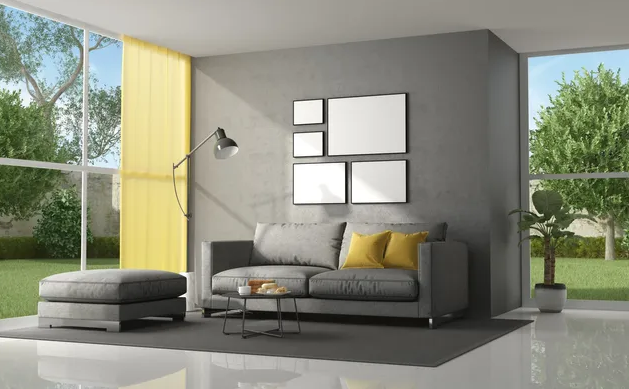One of the primary benefits of window tinting film is its ability to block up to 99% of the sun's harmful UV rays. These rays can cause heat buildup inside your home, making it uncomfortable during the summer months. By applying window tinting film, you can significantly reduce the amount of heat that enters your home, keeping it cooler and more comfortable. This, in turn, can help lower your reliance on air conditioning and reduce your energy consumption, resulting in lower energy bills. Furthermore, window tinting film is not limited to just cooling your home in the summer. It can also help keep your home warmer during the winter months by reducing heat loss through the windows. The film acts as an additional layer of insulation, preventing heat from escaping through the glass. This improved insulation can help maintain a more consistent indoor temperature, reducing the need for heating and ultimately leading to energy savings. Another advantage of window tinting film is its ability to prevent glare from entering your home. Glare from sunlight can be a nuisance, making it difficult to work on computers, watch TV, or even read comfortably. By installing window tinting film, you can significantly reduce glare, creating a more visually comfortable environment. As a result, you'll be less dependent on artificial lighting, leading to additional energy savings. In addition to its energy-saving benefits, residential window tinting also offers protection for your furniture, carpets, and other interior decor. Prolonged exposure to sunlight can cause fading and damage to your belongings. Window tinting film acts as a barrier, blocking a significant amount of UV radiation that causes this fading. By reducing UV penetration, you can preserve the color and quality of your furnishings, extending their lifespan and maintaining their aesthetic appeal. When considering residential window tinting for energy efficiency, it's important to note that not all window tinting films are created equal. Some films are specifically designed to reduce solar heat gain, while others focus on glare reduction or UV protection. For the most energy-efficient results, consider investing in low-emissivity (low-E) window tinting film. Low-E films are specially designed to reduce heat loss during the winter and heat gain during the summer, maximizing energy efficiency. In conclusion, residential window tinting is an effective way to enhance the energy efficiency of your home. By blocking UV rays, reducing glare, and preventing heat loss, window tinting film can help keep your home comfortable throughout the year while reducing your energy consumption and lowering your energy bills. If you're considering residential window tinting, contact Colorado Window Tint for expert advice and high-quality window tinting solutions. Invest in energy efficiency and start enjoying the benefits of residential window tinting today. Call us now! Another benefit of window tinting film is that it can prevent glare from entering your home, reducing the need for artificial lighting and further lowering your energy costs. Tinting film can also protect your furniture, carpets, and other interior decor from fading due to prolonged sun exposure. When it comes to energy efficiency, not all window tinting films are created equal. Some films are designed specifically to reduce solar heat gain, while others focus on glare reduction or UV protection. For the most energy-efficient results, consider investing in low-E window tinting film, which is specially designed to reduce heat loss and heat gain. In conclusion, residential window tinting can be an effective way to enhance your home's energy efficiency and reduce your energy bills. By blocking UV rays, reducing glare, and preventing heat loss, window tinting film can help keep your home comfortable all year round. Get in touch or call us today for an expert advice!
0 Comments
Leave a Reply. |
Archives
October 2023
Categories |
FOR REFERRAL CONTACT US: (720) 418 - 8191Monday 6:00 AM - 9:00 PM
Tuesday 6:00 AM - 9:00 PM Wednesday 6:00 AM - 9:00 PM Thursday 6:00 AM - 9:00 PM Friday 6:00 AM - 9:00 PM Saturday 6:00 AM - 9:00 PM |
OUR VIRTUAL OFFICE:Denver, CO, US 80222 |
Colorado Window Tinting is a referral service to pair you with the top contractors in CO, the university, and surrounding areas.
Colorado Window Tinting© 2024


 RSS Feed
RSS Feed